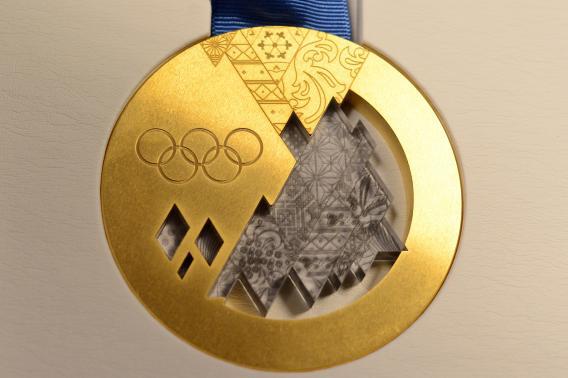On Monday, the Russian Interior Ministry confirmed what other Russian officials have been saying for weeks: Openly gay people attending the 2014 Sochi Winter Olympics, including athletes, will be arrested under the country’s draconian new anti-gay law. That law, you might recall, prohibits “homosexual propaganda” and is designed to discourage any kind of support for gay rights or even gay people.
The International Olympic Committee’s response to gay people? We mean it: Stay in the closet.
According to an IOC spokesperson, the Olympics aren’t the place for “proactive political or religious demonstration,” anyway. Just read the fine print: Rule 50 of the Olympic charter declares that “no kind of demonstration or political, religious or racial propaganda is permitted in any Olympic sites, venues or other areas.” By the IOC’s logic, gay people should be keeping quiet about their sexuality no matter what, in accordance with Rule 50. If they speak out and get arrested under Russian law—well, it’s not the IOC’s fault that they just couldn’t keep their mouths shut.
This response is absurd on several levels. First, it’s simply incorrect. As my colleague June Thomas has pointed out, Russia’s law is written so broadly that a spectator noting that she loves her gay relative could lead to arrest. One need only state that being gay is OK in order to risk prosecution under the “homosexual propaganda” statute.
Second, and more importantly, the notion that voicing support of gay people and gay rights, or that being gay, is a “demonstration” of “political propaganda” in violation of Rule 50 is obtuse and insulting. Supporting gay people’s right to exist and live openly is not “political.” It’s about human dignity, about respecting gay people as human beings and equals rather than disordered second-class citizens. Gay athletes aren’t planning to march through Sochi shouting confrontational slogans. They’re hoping to wear a rainbow flag pin out of pride for their community, or perhaps simply acknowledge the love and support of a partner. That’s not a demonstration of politics. It’s a demonstration of dignity.
Of course, the IOC’s bizarre intimation that being openly gay is somehow political propaganda has deep roots in homophobic culture. Consider the complaint, still common in parts of this country, about people who seem particularly gay: I don’t have a problem with homosexuality, but why do they have to shove it in my face? Where heterosexuality is the norm, any indication of homosexuality might seem like a belligerent affront. That’s certainly how the IOC sees it.
But consider how this rule might apply to other minority groups. What if a female athlete spoke out in support of equal rights for women? What if a black athlete declared that black people should be proud of their heritage? By the bylaws of the IOC, these proclamations should count of “political propaganda” as well—but of course they do not, because Russia is not arguing that women or black people are aberrant and immoral by the mere fact of their existence.
It remains unclear how best to remedy Russia’s homophobic threat to the Olympics. Some are calling for a boycott; others hope to move the event to an LGBT-friendly country. President Obama and British Prime Minister David Cameron have resisted these efforts while decrying Russia’s anti-gay law, though they’ve yet to propose their own solutions. Either way, the IOC’s demand that gay people remain functionally closeted during the games can only make matters worse. The committee has essentially accused openly gay people of “demonstrating” their sexuality as “propaganda” just by being gay—perfectly mirroring Russia’s new law. That’s not a solution. It’s the exact kind of homophobic thinking that got us here in the first place.
